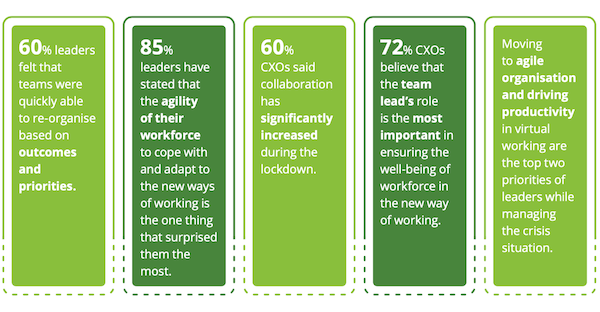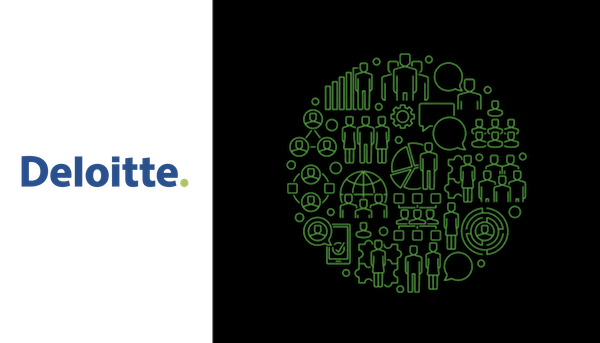With the COVID-19 outbreak, there has been a complete shift in the market and customer requirements, pushing organisations to transform their work processes. It is time companies realised that they need to be agile and adaptive on the work front.
As per the report by Deloitte, only the adaptable organisation model will be able to successfully taken organisations forward into the future. With the changes in customer requirements and the disruptions in the market and economy, organisations that fail to be agile will eventually cease to exist.
While most companies were aware that organisational agility is essential, only a few of them took initiatives to implement the same in the past.
Maturity level of organisations
The study reveals that organisations are at different maturity levels in terms of implementing adaptability.
Ninety six per cent companies believed that enhancing organisation agility was important to grow in the disruptive and evolving business environment that existed earlier. But, a very small percentage, 27 per cent are changing their way of working or scaling up adaptability in their organisations. They are trying to achieve this through agile, result-oriented network of teams fostering business and customer-driven missions.
Depending on the maturity levels in implementing adaptability, Deloitte segregated the organisations into four different categories,
Around 27 per cent of companies fell into this category. These companies have adopted agile-at-scale through an outcome-based network of teams fostering business and customer- driven missions.
Experimenting
Only about 30 per cent of the companies are ‘experimenting’ with disrupting the edges of the organisation that are focussed on the future, employing an agile structure, even while preserving the organisational core.
Understanding
About 34 per cent of the organisations are at the ‘understanding’ level of maturity. That is, they are gathering knowledge on agile models, outlining their approach, and assessing how the business will be impacted by the same.
Yet to begin
A very small percentage of organisations (9 per cent) are yet to start working on making their organisations agile and adaptable. They still believe that the traditional approach with hierarchies is the most effective model.
 Clearly, the lockdown has redefined the operating conditions for businesses in a short time, and has thrown up unexpected organisational challenges.
Clearly, the lockdown has redefined the operating conditions for businesses in a short time, and has thrown up unexpected organisational challenges.
Firstly, companies are having to juggle ideas to ensure employees’ health and safety, and also business continuity. The second challenge is to align the organisation to continuously- changing business priorities in the context of COVID-19. Thirdly, there is a need to navigate resources often and quickly respond to emerging market requirements.
Yet another challenge involves exploring external collaborations to come up with innovative solutions to resolve issues at hand and also fill the gaps so that operational effectiveness is ensured within the organisation, post lifting of lockdown. Knowingly or unknowingly, most organisations seem to have become adaptable and are considering approaches to bring about agility and respond to the crises as the present one.
Six lessons for organisations post-lockdown
The new and altered organisational world has learned six important lessons in how to respond to an emergency, such as a coronavirus outbreak.
1. Purpose-driven organisations aim to inspire employees and external stakeholders to contribute and overcome the crisis situation.
2. Unlike in the past, organisations have now learned to create small, diverse and flexible teams with varied capabilities to promote innovativeness and launch new products, services or approaches to serve customers.
3. Companies are now realising the importance of empowering employees so that they function as owners and work to produce the desired outcomes. In other words, standard roles and boundaries are becoming redundant.
4. Instead of hierarchical leaders, there will be leaders guiding teams across levels, encouraging everyone to take timely action, and leading the staff through challenging and uncertain times.
5. Organisations will now use the open talent market to address skill shortage and acquire new skills to focus on the business priorities.
6. More organisations will go beyond the traditional value chain to identify key stakeholders in the business ecosystem and engage with them to resolve issues collaboratively, share resources, and adopt innovative techniques.



